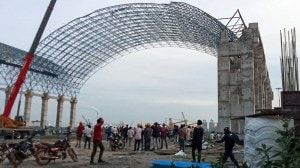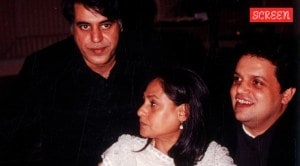For Russia, it’s beyond the call of duty
Some thirty years ago Indira Gandhi sent L.K. Jha, one of her closest confidantes, to the world's major capitals on a mission to explain Ind...

Some thirty years ago Indira Gandhi sent L.K. Jha, one of her closest confidantes, to the world’s major capitals on a mission to explain India’s continuing fears about China, which had gone nuclear. Jha went from London to Moscow to Paris to Washington seeking security guarantees for India. He was rebuffed by every one of these nations, including the former Soviet Union.
It only redoubled Mrs Gandhi’s determination to put New Delhi on the world’s nuclear map. She refused to sign the Nuclear Non-Proliferation Treaty in 1968. Six years later, India stunned the world with Pokharan-I.
Jha’s foreign tours in the mid-1960s bring to mind the perambulations of Brajesh Mishra and Jaswant Singh, the PM’s closest foreign policy advisors. Unlike Jha, they were not seeking security guarantees but hoping the world would understand India’s position. But like Jha, they were received with varying degrees of understanding and criticism. But the message everywhere, including Moscow, has been the same: first sign theComprehensive Test Ban Treaty.
Some sections of the Foreign Office are beginning to reminisce about the good old days of the Indo-Soviet order. Why didn’t Russia block the deferment of World Bank loans? Why is Yevgeny Primakov, the Russian foreign minister, laying the sign-CTBT-or-else line so thick it sounds like it’s coming from Washinton? France’s “abandonment” of India at the European Council of Ministers and the P-5 meetings is understandable, but Moscow…?
Seven years into the disintegration of the Soviet Union, India refuses to recognise that the world has changed. When Yeltsin tried the tiger trick atop a tank in August 1991, he was telling the West that they could have all of Russia for breakfast if only Tsar Boris could, a bit like a crazy diamond, shine on forever.
Both sides kept the bargain. The decline into deep chaos as Russia moved 90 degrees from a command economy to a market one continues. As recently as two weeks ago, the rouble plunged again and the stock market crashed. In anyother democracy, the government would have fallen. But Yeltsin remains, unfazed and unwell, mouthing slogans about market reform and democracy with the same zeal that he, as a Communist Party boss as little as a decade ago, talked about the dictatorship of the proletariat.
So why does India continue to expect a relationship beyond the call of diplomacy from Russia? Actually, in a little-told but heart-warming story, the Russians did rise to the occasion in 1992-93, when Washington pressured it to cancel a contract to supply rocket engines to Delhi. The unfairness of the still-new world order then provoked lower-level officials in Russia’s government to continue to pass on information to Delhi. Yeltsin cancelled the contract in mid-1993 but by then, Delhi had what it needed.
Despite the mess it is now in, Russia has since May 11 been responsible for toning down international criticism on Kashmir, even at the Security Council. And last week it sent Atomic Energy Minister Yevgeny Adamov to implement thedecade-old agreement on building two civilian reactors, and break the perceived international isolation of India in these post-Pokharan days.
On non-proliferation issues, however, Moscow’s stand has remained clear from the Jha-Kosygin days: India should abide by arms control treaties and sign the NPT. Primakov merely added a paragraph in his recent conversation with Mishra: please also sign the CTBT.
The difference between Kosygin and Primakov is that the Soviet Union never made a big deal about its differences with India. But Primakov is not only personally committed to non-proliferation but as foreign minister of a steadily weakening Russia he had no option but to go along with the US & Others in reprimanding India.
India’s isolation cannot be ended by outsiders. New Delhi needs to look within, draw from its civilisational strength and survive the present. India’s nuclear status may be applauded or derided, but it cannot be changed. Instead of catering to a limited, domestic constituency, thegovernment now has the opportunity of overhauling India. Education, health, infrastructure… we could start with tightening our belts, as Mao once suggested. (Beijing found resources for its nuke programme as well as the social sector.) Or if you prefer JFK, ask not what your country can do for you…



- 01
- 02
- 03
- 04
- 05




























